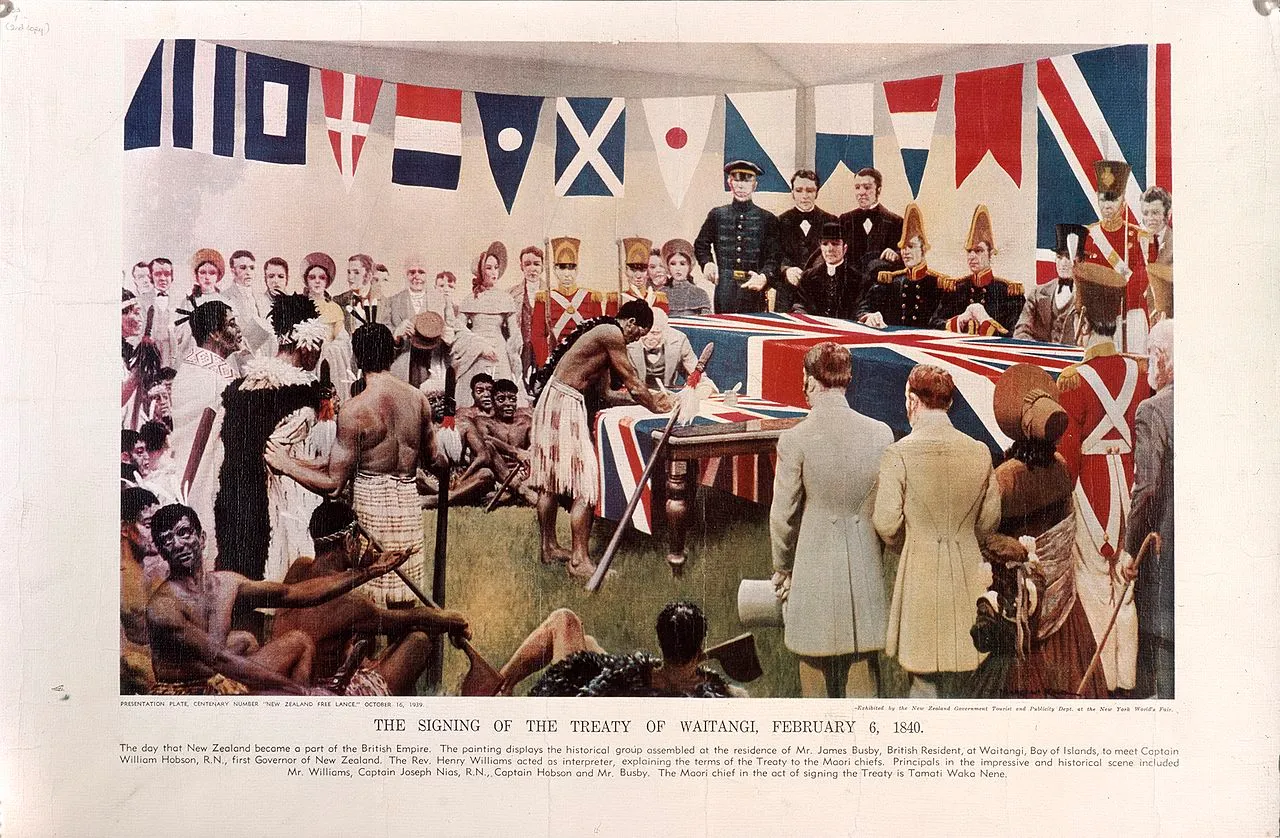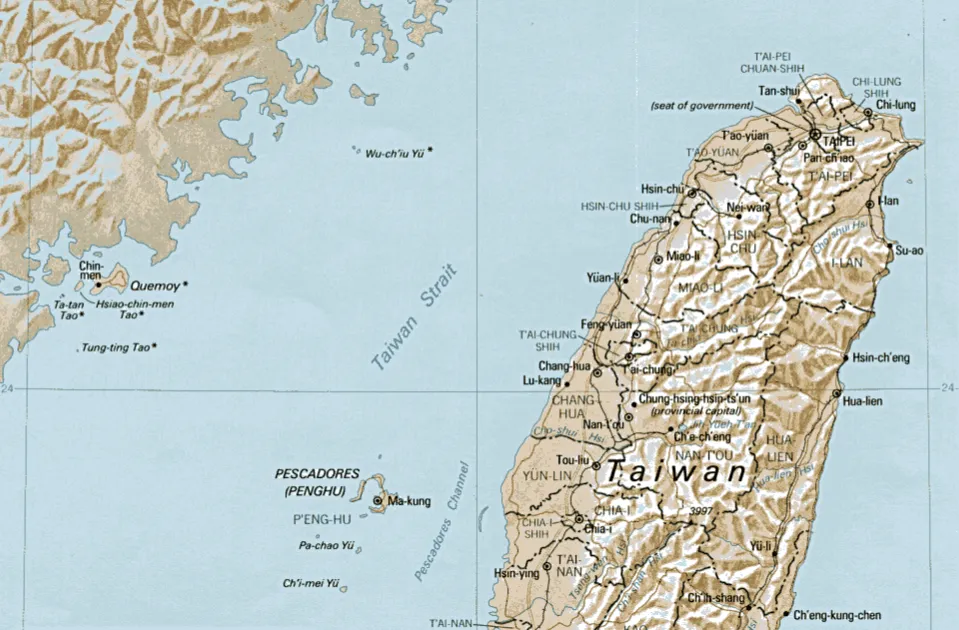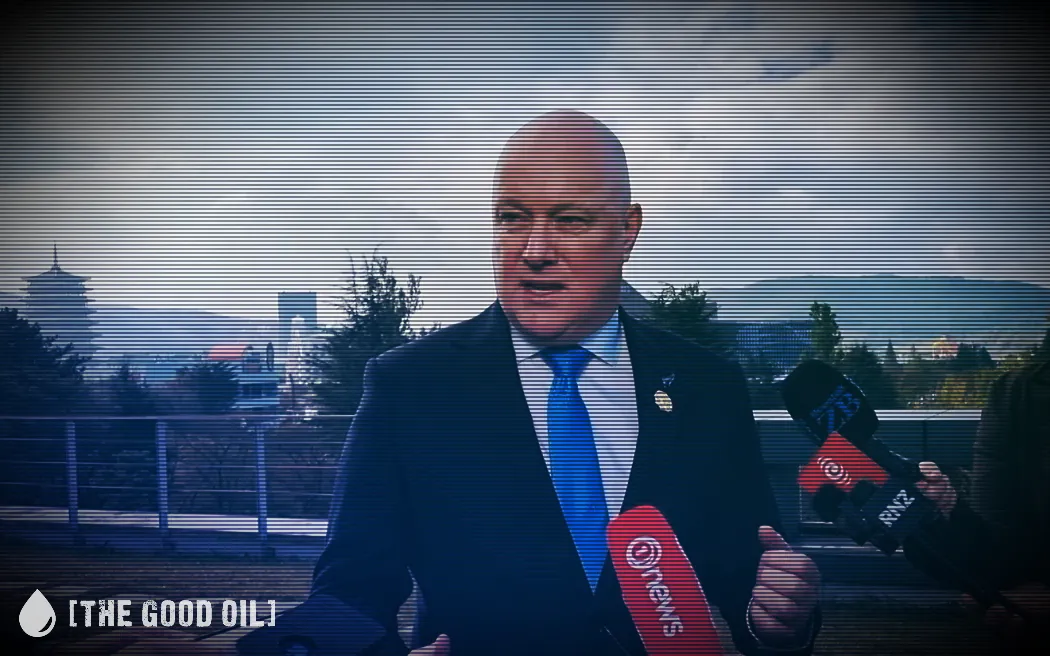Table of Contents
Grant Finch
The ‘Principles of the Treaty of Waitangi as expressed by the Courts and the Waitangi Tribunal’ explains how the legal profession has arrived at its current position on the Treaty and invented ‘partnership’. This is too narrow an examination as it limits itself to the machinery of law and avoids the implications of its conclusions. The Law, however, sits inside a society with its ultimate purpose being to provide the lubricant that enables people to peacefully rub against each other.
Our Treaty is not a typical one. Ours was an attempt to ratify an existing process between 2 disparate parties, with no actual input from one of the parties. For Maoridom there was a tangible problem, while for the UK there was a moral problem.
Courtesy of the Napoleonic Wars the world was awash with muskets. This coupled with a strident West, evidenced by traders, whalers, missionaries, adventurers and settlers embracing global opportunities, made New Zealand an international ‘plaything’. The implication of this was a growing outsider presence, and the indigenous population was in upheaval.
None of this made any meaningful difference to the UK. Its issue was essentially moral (with minor geopolitical concerns). Western involvement in New Zealand was only going to increase, and if ‘push came to shove’, they had the means and machinery to overtake the locals. If this were to occur, the only impact on the UK would be on its concept of itself. Hence the Treaty.
We can all argue about whether this was right, or should have been, but that ignores the real time, human on human interaction. An honest inquiry into the process of arriving at the Treaty and the motives and intentions of all the parties concerned, as well as the context in which all this happened, would then give us the best appreciation of what was intended. That is unlikely to ever occur. Instead, the Treaty is now viewed as European manipulation that backfired. The Crown was ‘hoist by its own petard’ and should now pay for its machinations.
The modern attempts to drill down to the Treaty Principles whilst only concerning itself with one interpretation are a dishonest exercise designed with one outcome in mind. Especially given it is now an ‘industry’ with a large budget and academically trained mandarins, as well as philosophical partners in the judiciary.
I have limited confidence in activist lawyers. If The Law is an immutable pillar of our society how come it can be so easily ‘reinterpreted and rewritten’? Were all the judges that preceded activist judges not as intelligent as them, or were they just dishonest? If The Law is so transient then why should we follow it? If we need it for social cohesion alone, then any of today’s conclusions (and the confidence they may give us for tomorrow) are meaningless, knowing that a new ‘interpretation’, for the sake of social cohesion, can be handed down any time it suits.
This leads me to ask: is the Treaty, in its reinterpreted form, benefitting New Zealand? Even if it were possible to actually understand the intent of men 180 years ago, were they prescient enough to construct a binding document for all time, especially considering that was never their intent? It is only a modern construct that has made the Treaty carry this burden. There was no intention, of defining the economic and political framework for the future of New Zealand. The framers’ worldview was shaped by increasing individuality and freedom, and the confidence in a laissez-faire economy that would gradually benefit all. To the extent they could, they envisaged the inevitability of all peoples embracing and benefiting from this inexorable process. That an estimated half of the Maori population attended mission churches where the virtues of ‘civilisation’ were extolled, shows they were not averse to this aspiration. They were certainly not looking for a status quo Maoridom contemporaneous with a Westminster system.
Dissatisfaction with current economic models and UN mandated First Peoples’ ascendancy, coupled with Anglo guilt, has led to the misguided assumption that returning land and compensatory redress will cure the Maori malaise. But when is enough ever enough? This ‘remedy’ can’t rectify the problem, because this isn’t the locus of the problem.
To presume that there is an objective status for the Treaty in the NZ context and when that ideal convergence occurs all will be resolved, is just a myth. When it becomes obvious that this wasn’t the solution to New Zealand’s racial divisions it will be too late. Neither Maori nor Pakeha nor any of the other 100+ nationalities that constitute New Zealand will benefit.
Please share this BFD article so others can discover The BFD.









